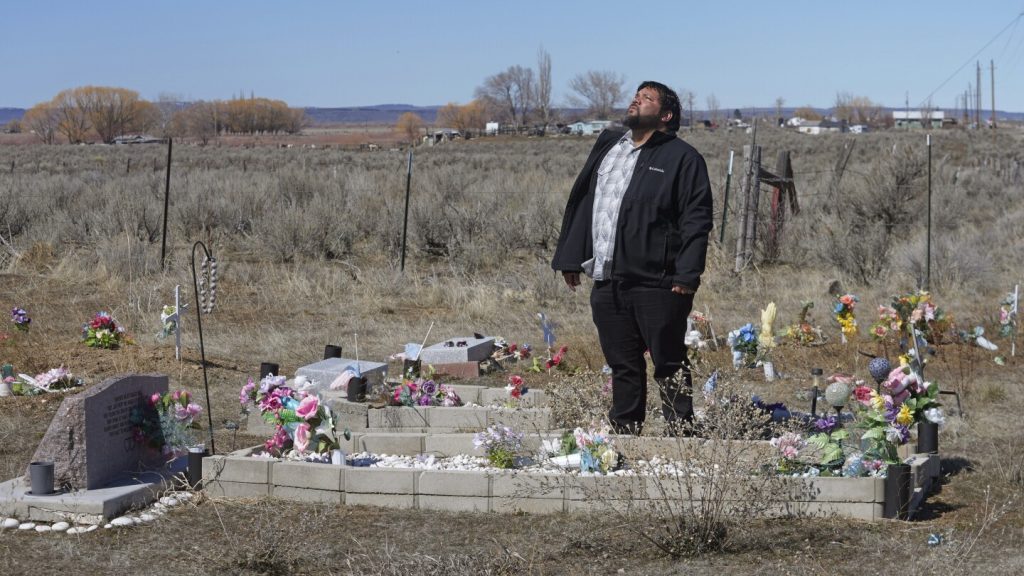The remote Duck Valley Indian Reservation, straddling the Nevada-Idaho border, has been hit by a health crisis that has led to widespread illness and cancer among its residents. The recent memorial service for tribal chairman Marvin Cota shed light on the community’s struggles with illness, which many believe are linked to contaminated land. The discovery of a document mentioning Agent Orange chemicals has raised suspicions about the possible involvement of the U.S. government in the contamination of the reservation. The tribal community, which has relied on cattle ranching for generations, now faces uncertainty about the safety of their land and water sources.
The U.S. Bureau of Indian Affairs, which oversaw the maintenance building and irrigation shop in Owyhee, recently found a document from 1997 detailing the use of herbicides that make up Agent Orange in the canals. This revelation has sparked concerns among tribal leaders about the extent of contamination and its impact on the community. Efforts are being made by federal agencies to investigate the contamination and potentially clean up the affected areas, but tribal members remain skeptical of the government’s commitment to addressing the issues promptly.
Despite promises of an investigation and cleanup, tribal members are calling for urgent action to prevent further sickness and death in the community. The past cleanup attempts by the federal government have raised concerns about the lack of urgency and direction in addressing the environmental hazards on the reservation. The tribal chairman, Brian Mason, is leading efforts to demand answers from federal officials and ensure that the community’s health and well-being are prioritized in the cleanup process.
The legacy of contamination in Indian Country is not unique to Duck Valley, as many tribal communities have faced environmental hazards that have led to health issues and deaths. The long history of exposure to harmful substances, such as pesticides and herbicides, has had devastating effects on Native American communities across the country. The lack of transparency and accountability in addressing these issues has only exacerbated the health crisis and left many communities vulnerable to further harm.
The tribal community in Duck Valley is grappling with the impact of past contaminants on their health and livelihoods. The strong connection to the land and the tradition of cattle ranching have deep roots in the Shoshone-Paiute tribes, making the environmental crisis even more devastating. Tribal members, including those who have lost loved ones to cancer, are seeking answers and justice for the harm caused by the contamination. The chairman’s call for a thorough study of the contamination’s effects could provide a pathway for tribal members to seek compensation from the federal government.
As tribal members face uncertainty about the safety of their land and water sources, the community remains resilient in the face of adversity. The coming generations of Sho-Pais continue to uphold their traditions and culture, despite the challenges posed by environmental contamination. The fight for justice and accountability in addressing the health crisis in Duck Valley is a testament to the strength and perseverance of the tribal community in the face of adversity.


